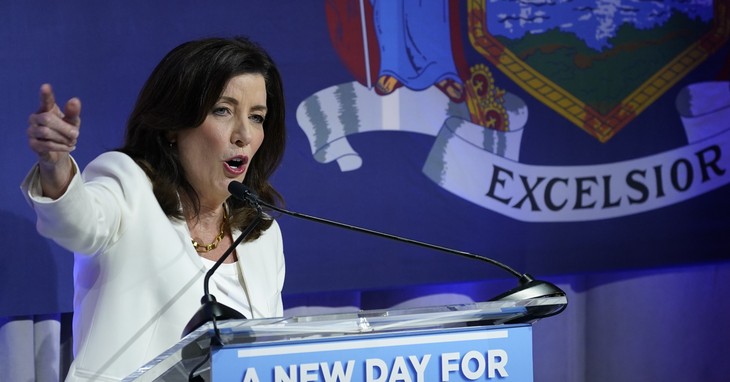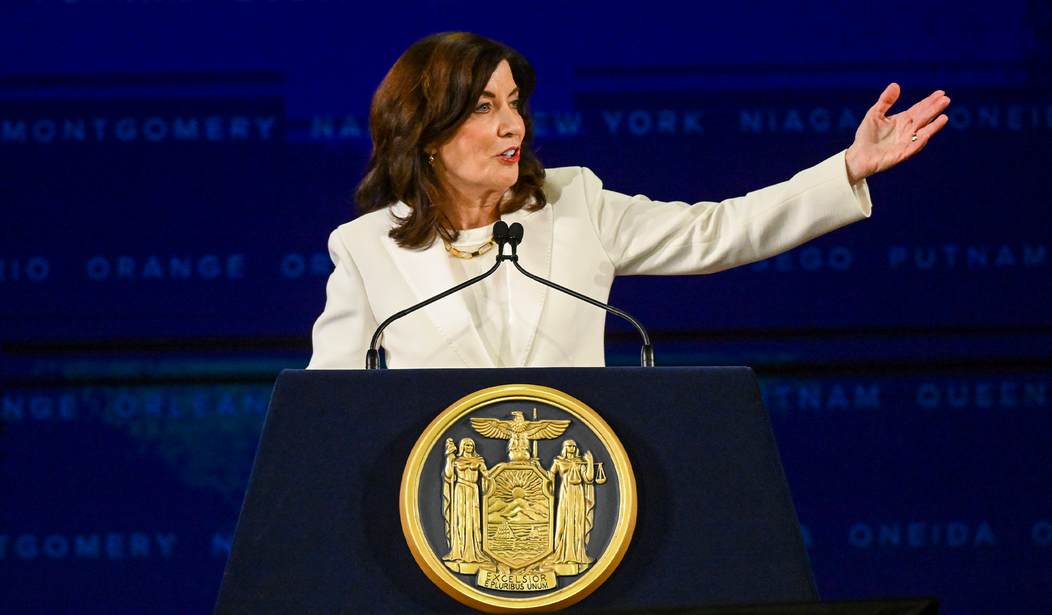The opinions expressed by contributors are their own and do not necessarily represent the views of RedState.com.
It wasn’t all that long ago that Democrats used to have a very adversarial relationship with the major pharmaceutical companies. Of course, as those companies started to align themselves with Democratic policy ideas (as most major corporations seem to want to do these days), the Democrats begin extolling their virtues as if they weren’t treating them as evil capitalists just a few years before.
Recently, Big Pharma has been building better relationships with Democrats after years of fighting between the industry and progressives over things like drug prices. What changed? It’s probably got a lot to do with the Democrats’ COVID policies, as well as their advocacy for policies that benefit Big Pharma (those vaccine mandates that are increasingly being exposed as the farce they are).
The more cynical out there might argue that the bevy of mental health issues spurred by lockdowns have also been financially beneficial to Big Pharma. I, for one, am fully capable of being that cynical, but that’s a column for another day.
Also a part of this sudden shift in relations is the Democrats staunchly opposing anything that looks like “Trumpism.” In this case, former President Donald Trump took a much more anti-Pharma line – as has Ron DeSantis, for what it’s worth – on policies that the sector hates, like prescription drug reimportation.
In true “the enemy of my enemy is my friend” fashion, this means Democrats just don’t hate Big Pharma as they did back in 2015, and Big Pharma seems to be succeeding in getting some Democrats to dabble in doing a little of Big Pharma’s bidding on a major priority: Paring back the 340B drug discount program.
I’ve been on this one for a while because it’s a damn shame what these companies are getting away with – flagrantly ignoring the law.
If you haven’t been following this issue, the program basically makes these pharmaceutical companies sell drugs at discount prices to healthcare providers in poorer, rural areas. It’s essentially a swap for the companies having access to entitlement money (and of course, these same companies have supported entitlement expansion through Medicare Part D and Obamacare in the past).
It costs taxpayers nothing, but drug companies hate it because it cuts into their already robust profits. Poorer, rural voters (most of whom are conservatives or at least lean center-right) benefit from it disproportionately. One of Big Pharma’s top legislative priorities is paring back the program, and they’ve been busted enlisting minority groups in an astroturf-like effort to encourage Democrats to do it.
It looks like those efforts might be bearing fruit in a pair of Northeastern, blue states.
In Connecticut, there aren’t a ton of poorer, rural voters—though there are more classic blue-collar, less well-off, more rural or exurban Trump-type voters in districts like the ones Rep. Nancy Johnson and Rep. Rob Simmons held back in the early 2000s. Here’s what’s going on there: Gov. Ned Lamont has filed his own bill, as the governor, to increase administrative burdens on 340B providers in one of the key ways Big Pharma has been advocating.
Because Lamont himself filed the bill, it will almost certainly get a hearing and progress in a way that a rank-and-file legislator’s bill might be introduced and then go on to die.
The ostensible goal of making facilities file annual reports disclosing 340B drug revenues and detailing how they use money banked from discounts is transparency, which sounds like an inarguable good. There’s a problem with this, though. Most of these facilities don’t have the money to employ a full-time bureaucrat to undertake these filings, and pharmaceutical companies know this.
Their hope is that the requirement will cause these providers to exit the 340B program either involuntarily due to non-compliance or voluntarily due to an inability to spend the money to comply. That means fewer entities to make discounted sales to, which is a pretty sweet deal for Big Pharma.

In New York, by contrast, there are actually a decent chunk of poorer, rural, conservative voters, in areas like Upstate (think Elise Stefanik’s district) or in the Western part of the state (around places like Buffalo).
Here’s what’s happening there: Gov. Hochul’s budget will make the state the purchaser of drugs, meaning individual facilities can’t get the discount from drugmakers. That may mean they can’t personally pass discounts along to patients, and it means that where they serve richer patients who wouldn’t get the discount, they cannot directly bank the difference between the normal sales price of drugs they sell and the discounted price at which they acquire them to help do things like employ doctors.
Here’s how one entity that currently benefits from the discounts sees this:
Evergreen Health Chief Operating Officer Michael Lee said that difference amounts to roughly $14 million a year for his organization alone.
“There’s not a doubt in my mind that health outcomes in Western New York are on the line if this carveout goes through,” he said.
[…]
“There is absolutely a reduction in services and staff if this happens. There’s no way around it,” he said.
Hochul is saying she’ll make the entities whole, out of money doled out through her new scheme, but the problem is, that will almost certainly entail more bureaucracy for the providers, limited ability for them to directly pass on discounts to patients, and a delay in their ability to bank money that amounts to the difference between drugs sold at full price and the discounted price providers would otherwise pay. That delay will mean cuts in services and staff, which will hurt patients’ health.
Ironically, this will be a problem around Buffalo, which is Hochul’s backyard.
Guess where this has already been a problem? Another blue state: California, where Hochul’s plan has been in effect for a couple of years already.
Lee said at minimum, Evergreen is not expecting immediate compensation, which means it will likely have to make cuts in the spring.
[…]
Lee said there is reason for providers to be skeptical of the administration’s plan. He said California recently implemented a similar plan, and two years later, due to hurdles with federal approval and mechanisms to distribute the fund, organizations there still haven’t seen any money.
To reiterate: California did what Hochul is now trying to do two years ago. And the providers, who were promised they’d get the same money to enable them to discount drugs for poor patients or bank money from the discount program to help them stay open and pay doctors and nurses haven’t seen a dime in two years.
How much do you want to bet that this has hurt people in red, rural districts more than in wealthy pockets of San Francisco or Los Angeles?













Join the conversation as a VIP Member